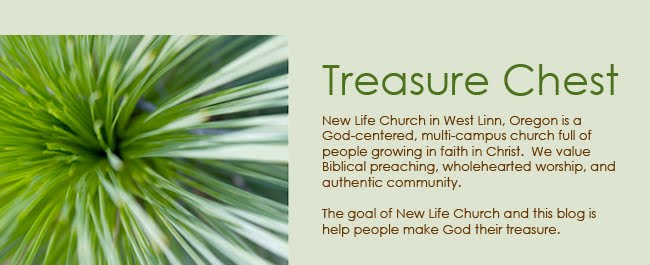As a pastor of one of West Linn’s oldest churches I feel obligated to respond to Betsy Wosko’s article last week in the West Linn Tidings entitled, Churches need to address rights of the most lowly – animals.
Her article challenged me, which was her aim. But I thought it fell short in four ways. First, she made the false assumption that animals are the most lowly. Surely, in the absence of any criteria except lowliness one must admit that plants are lower on the food chain than animals. Therefore, her article could have been directed at those who eat plants not animals.
Second, animals are not people. You cannot attribute to a Holstein the maternal feelings of a human mother. And, deceiving fish – really? Even non-religious people realize that human life is not like animal life in that killing a four-point buck is not the same as gunning down your neighbor.
Her third problem is logical. It does not follow that rodeos, circuses and fishing cause racism, abuse, war and crime. Lack of compassion toward animals is not logically or necessarily the root of any other sin. Eating turkey at Thanksgiving dinner does not ‘guarantee’ parishioners will be thirsty for meaning. It just doesn’t make sense.
The fourth reason her admonition to “challenge your church’s silence” falls flat is her ignorance of the Gospel. She states that “if churches are really serious about promoting compassion in accordance with the Gospel they must first start thinking critically about our treatment of animals.” The Gospel, as I read it in the Bible, states that human beings were uniquely created in the image of God and given dominion over the earth (including animals). Humans rebelled against God, sinned, and messed up everything. The inherent blackness of human hearts is sometimes directed at animals, and no one is in favor of that.
God sent his Son Jesus to reconcile people to himself. God reconciles people to himself by grace alone, not because of their religious performance, their good works or their diets. Ephesians 2:8-9 states, “For it is by grace you have been saved, through faith-- and this not from yourselves, it is the gift of God not by works, so that no one can boast.” This is the gospel, that God is reconciling men and women to himself through his Son.
Part of the freedom from religious formality that the Bible offers us is the freedom to eat any type of food. In response to a similar conversation to this one Jesus asked, "Are you so dull? Don't you see that nothing that enters a man from the outside can make him 'unclean'? For it doesn't go into his heart but into his stomach, and then out of his body." (In saying this, Jesus declared all foods "clean.") (Mark 7:18-19).
How, then, should a Christian act toward animals? Three things come to mind, all motivated by a respect for God and/or other people.
First, we should seek to preserve creation and be good stewards of it. So, for the sake of generations that will come after us and as responsible people before God, we should, for instance, preserve endangered species.
Second, we should alleviate the suffering of an animal. Jesus said to them, "If any of you has a sheep and it falls into a pit on the Sabbath, will you not take hold of it and lift it out? (Matthew 12:11). Jesus’ very next words are also instructive, “How much more valuable is a man than a sheep.” Other religions may (and I know some do) make animals sacred but that is not the Christian Gospel.
Third, we should treat animals humanely. For the Scripture says, "Do not muzzle the ox while it is treading out the grain” (1Timothy 5:18). Think of the animal’s needs, even as it serves you. While this provides limits on our treatment of animals, it does not prohibit the use of animals for food, pets, labor, entertainment or research. Animals are not to be needlessly abused, but are to be employed in the service of humanity.
The chief concern of the church is and will remain that people are reconciled to God and that they love their neighbor.
Wednesday, July 06, 2005
My Response to a Plea for Animal Rights
Subscribe to:
Post Comments (Atom)

No comments:
Post a Comment